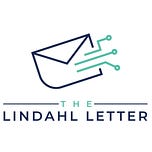Thank you for tuning in this week. This is week 166 of The Lindahl Letter publication. A new edition arrives every Friday. This week the topic under consideration for The Lindahl Letter is, “Those recent Nobel Prizes.”
Pretty much everywhere you consume technology related news recently has had a lot of coverage centered on a couple recent Nobel Prizes that were awarded in physics and chemistry. For the most part the announcement of who won the Nobel Prize does not really draw my attention. I’m not sitting around and waiting to hear this particular news. The last time I watched an acceptance speech for this type of award it was fictional. Honestly, it happened during a television show broadcast of The Big Bang Theory where fictional character Dr. Sheldon Cooper, played by the legendary actor Jim Parsons was very pleased to win the award [1]. I will admit that at the time it was pretty compelling television.
This year the Nobel Prize in Physics for 2024 went to John J. Hopfield and Geoffrey E. Hinton, “for foundational discoveries and inventions that enable machine learning with artificial neural networks” [2]. You may remember that Geoffrrey Hinton famously left a very good job at Google to try to warn people about the dangers of artificial intelligence [3]. I’m going to share a link to an 11 page paper where some of the risks being described by Hinton are shared. It’s a very short and highly digestible paper; the citations start up in the middle of page 6 so it’s a pretty quick read.
Bengio, Y., Hinton, G., Yao, A., Song, D., Abbeel, P., Darrell, T., ... & Mindermann, S. (2024). Managing extreme AI risks amid rapid progress. Science, 384(6698), 842-845. https://arxiv.org/pdf/2310.17688
Two of the most cited academic papers from Hinton would be about Imagenet classification and deep learning. Both papers are very well cited at 134k and 85k respectively. Those are both very high citation numbers for an academic paper. Generally speaking, having a couple hundred citations is considered a well read paper. These papers are orders of magnitude beyond that baseline.
Krizhevsky, A., Sutskever, I., & Hinton, G. E. (2012). Imagenet classification with deep convolutional neural networks. Advances in neural information processing systems, 25. https://proceedings.neurips.cc/paper/2012/file/c399862d3b9d6b76c8436e924a68c45b-Paper.pdf
LeCun, Y., Bengio, Y., & Hinton, G. (2015). Deep learning. nature, 521(7553), 436-444. https://hal.science/hal-04206682/document
Let’s switch gears and talk about chemistry instead of physics.
The Nobel Prize in Chemistry 2024 went to David Baker “for computational protein design” and Demis Hassabis and John M. Jumper “for protein structure prediction” [4]. You can read papers related to these topics that the award winning authors contributed to and they have several hundred citations. These papers are nowhere near as popular as the ones referenced related to deep learning and neural networks. I had read about AlphaFold before and knew it had been considered a significant advance in technology.
Siegel, J. B., Smith, A. L., Poust, S., Wargacki, A. J., Bar-Even, A., Louw, C., ... & Baker, D. (2015). Computational protein design enables a novel one-carbon assimilation pathway. Proceedings of the National Academy of Sciences, 112(12), 3704-3709. https://www.pnas.org/doi/epdf/10.1073/pnas.1500545112
Jumper, J., Evans, R., Pritzel, A., Green, T., Figurnov, M., Ronneberger, O., ... & Hassabis, D. (2021). Highly accurate protein structure prediction with AlphaFold. nature, 596(7873), 583-589. https://www.nature.com/articles/s41586-021-03819-2.pdf
You are now caught up a little bit on some of the Nobel Prizes from 2024.
Footnotes:
[1] The Big Bang Theory season 12 episode 24 titled “The Stockholm Syndrome” from May 16, 2019 https://www.imdb.com/title/tt6674736/
[2] https://www.nobelprize.org/prizes/lists/all-nobel-prizes-in-physics/
[3] https://www.cnn.com/2023/05/01/tech/geoffrey-hinton-leaves-google-ai-fears
[4] https://www.nobelprize.org/prizes/chemistry/2024/summary/
What’s next for The Lindahl Letter? At some point this series will move back to being planned out 5 weeks ahead of publication.
If you enjoyed this content, then please take a moment and share it with a friend. If you are new to The Lindahl Letter, then please consider subscribing. Make sure to stay curious, stay informed, and enjoy the week ahead!






Share this post